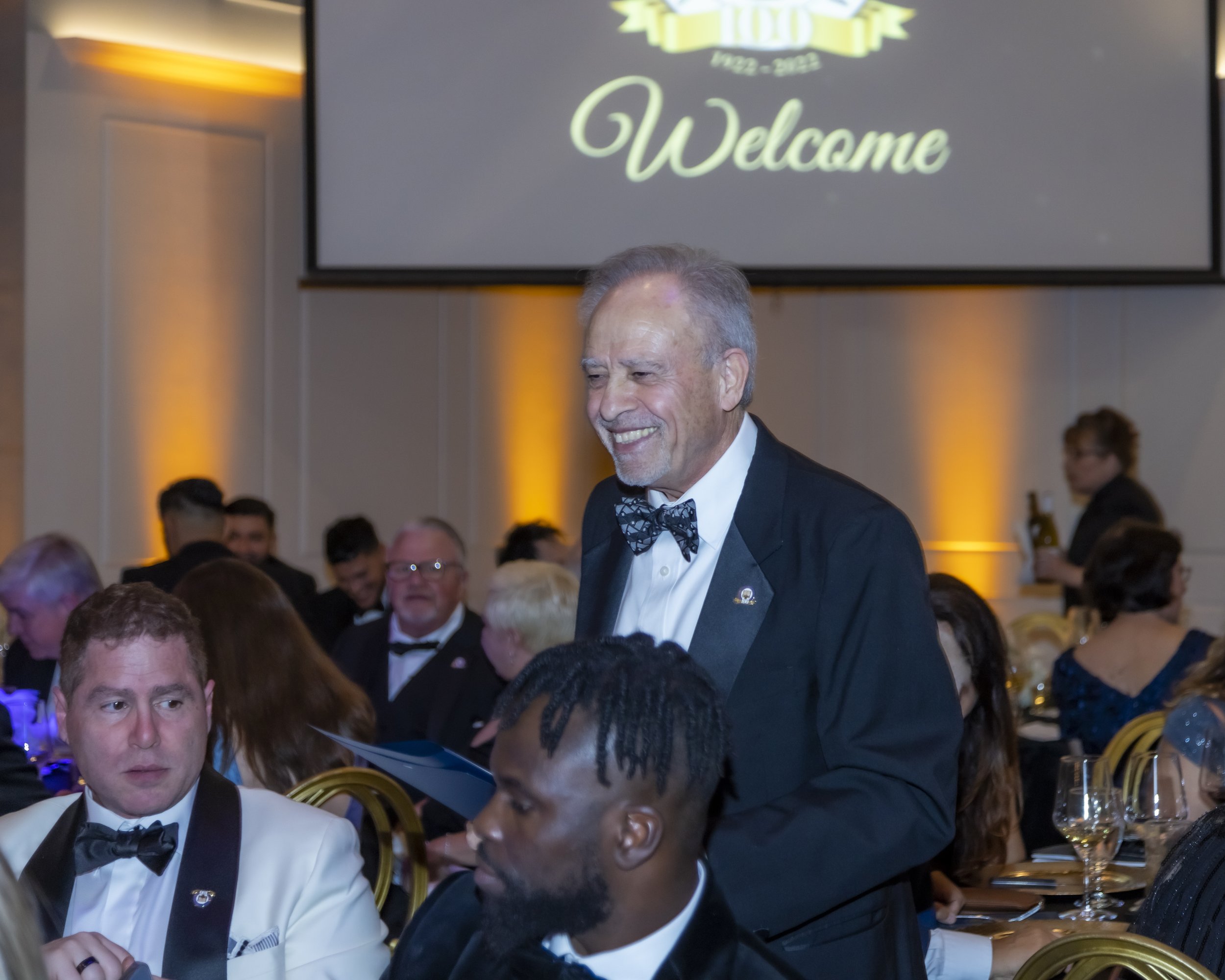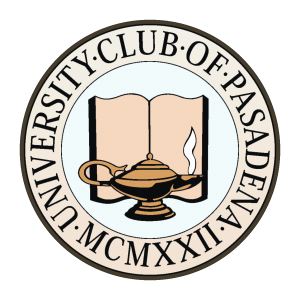An Interview with Cyrus Afshin, General Manager
The University Club of Pasadena
In August 2021, hurricane Ida, a category 4 storm, slammed into the Louisiana coast with winds over 125 mph directly into the mouth of the Mississippi River. Hurricane Ida was so powerful that it temporarily reversed the flow of the Mighty Mississippi. When the pandemic shut down the world, businesses and other organizations scrambled to adjust. Working remotely became the norm, restaurants converted to take-out only operations, sporting events were played in “bubbles”, and the list goes on and on.
There are literally thousands of stories, triumphs and defeats, that emerged during this extraordinary event. In each case, there are accounts of leadership stories that portrayed valiant efforts to adapt to the state of affairs in order to survive during the crisis.
To illustrate such a story, I chose to interview Cyrus Afshin the General Manager of the University Club in Pasadena California. The University Club is a historic membership organization and event venue. The club was established in 1922 and just celebrated its centennial anniversary. I wanted to see how the club had weathered the pandemic storm and how Cyrus used his leadership acumen to steer the organization through this catastrophic event.
The University Club’s primary role is to encourage networking and host social events. Its whole purpose is to bring people together for meetings, weddings, and other communal activities. The pandemic impacted literally every aspect of the club’s purpose. For the University Club, as with so many other institutions, this was a crucible occurrence. The pandemic was an intense, unplanned, and transformative experience. It required exceptional leadership skills to overcome its repercussions.
Cyrus is a skilled administrator in the club membership and hospitality arenas. He has over 30 years of experience in this unique business enterprise. I started our conversation with Cyrus by asking how he reacted when he first realized what was happening as the awful and ever deteriorating news about COVID -19 became more apparent. “I was in shock, this can’t be happening”, he said. His surprise was driven by the fact that he had never even heard of a pandemic before COVID-19. He, like many others, was holding out hope that it would all be over soon – but, as we know, that was not the case.
Cyrus reflected on when he started as the club’s GM and how he had to face many challenges upon his arrival. He started working at the club in the midst of the great recession. With his vast experience, he knew that he had to hit the ground running to make decisions that would get the club back on a sound footing. He adopted the philosophy that he was just going to say “yes” to every possible revenue source and make it work. He convinced the club members to open for more events and he reached out to large organizations, like Kaiser Permanente, to show them the benefits of utilizing the club facilities to hold meetings and retreats. His actions proved to be fruitful, and the club was “riding high”, pre-pandemic. This all came crumbling down in 2020. Cyrus likened it to flowing down a river, comfortably moving forward, and then, all of a sudden, in a flash, the river violently changes course and is now taking you the other way. It was devastating, and no matter how hard you paddled, you were being pushed in the wrong direction. Like hurricane Ida reversed the flow of the Mississippi River, the pandemic of 2020 changed the tide for us all.
The Club was forced to close, per COVID requirements, on March 16, 2020. Cyrus knew, this was bad - really bad. He had no plan for this, no immediate options and no idea how he would meet this challenge. Still not knowing the duration of the lock-down, Cyrus watched as cancellations mounted for scheduled events and things just kept getting worse. How was the club going to survive? What was he going to do?
The world began to view businesses in primarily two categories: essential and non-essential. Certainly, the University Club was not a “necessary entity”. On the scope of importance, especially during a pandemic, it probably didn’t rank all that high in most people’s eyes as essential in any way form or fashion. So, I asked, what makes the University Club valuable? Why should people care? In a pandemic, you are essentially the leader of a relatively inconsequential institution. How did you lead through this paradox? Boldly and confidently, Cyrus recoiled at this assertion and declared that “it was the members that made the club valuable. It was there for them, and, to some, it served as an extension of their home” And, then he asked me, “is your home important to you?” He said that “this pandemic, if it has taught us nothing else, it has shown us how important engaging with each other is and that the club offered the opportunity for people to come together and share what they do and a part of themselves with others. People can learn from and about each other. The club provides a place to network in a way that you can’t in most other meeting locations. People can get information about just about everything here and that’s valuable!”
When asked how the staff responded. He mused that he would tell the staff that, “every day is not going to be a glory day. Some days will be dark and when the glory days do come then you need to ride that wave of triumph through the challenges that will certainly come. And, while it seemed dismal now, this too shall pass.” The staff was very supportive. They wanted to stay with the club and wanted to ride out the storm – and most of them did. When asked what the toughest challenges were that he had to make during the pandemic and what kept him up at night, he said that he would ponder the questions, “what was he going to do and where would the money come from?” But the one thing he did know was that the University Club would need to stay a club. The notion that having to sell this historic venue at the pinnacle of its almost 100-year existence was untenable. The idea of repurposing the club to a restaurant or something else was, also, just not in the cards. He had to find another way to keep the club afloat. He had to be resourceful, he had to use the assets available to him to try to survive.
The University Club is adorned with a large parking lot and, of course, the benefits that come from the legendary Southern California weather. When food establishments were given the green light to have outdoor dining, Cyrus turned the parking lot into a barbeque extravaganza. The idea came, after a visit to Texas, where he modeled the BBQ event after a neighborhood BBQ he had attended in the Longhorn state. He garnered the assistance of a popular local well-known restaurateur, who had closed his barbeque restaurant prior to COVID. This partnership turned out to be a huge success. The outdoor venue had music and served a multitude of BBQ favorites. The BBQ served as a welcome respite for COVID-weary patrons looking for welcomed relief from their pandemic induced isolation.
“A foundational element of leadership is the ability to be resourceful. The capability to adapt to fluctuating circumstances is the cornerstone to adjusting to changing tides.”
I asked him, what kept him going through it all? He said that like other people, he had his down times, but he was able to keep motivated by talking to other people, relying on people that he trusted for their opinions and he got input from many as to how he should proceed. It was through this council that gave him the confidence and conviction to move forward and to advance his ideas. Through this ordeal, he indicated that the Board of Directors for the club gave him their full support as did the club members. Steeped in the rich tradition of the University Club, its members were and continue to be deeply committed to building the membership and diversifying activities to make sure that the club continues to thrive. This dedication was apparent during the pandemic.
I had not been inside of the club for over 2 years. During this time, I wanted to know what Cyrus thought was the most important decision that he had to make during the pandemic. As we toured the club, he showed me all for the upgrades and changes that had been made. He said that completing these major renovations was his most important decision. He asserts that it was definitely the right decision even though it was being Implemented during such a time of uncertainty. With the club essentially closed, he said, “what better time to engage in construction. With the disruptions that construction inevitably causes, it was the perfect time to do it.”
“Making decisions is one of the most important obligations for all leaders. The choices that a leader makes can have far reaching implications and consequences for people and institutions. How a leader carries out this important duty is paramount to an organization’s success. ”
In regard to setting priorities, Cyrus works to always focus on the person that he is engaging with at the moment. This was clearly evident during our interview. He was not distracted by his phone or other people during our time together. He gave his total focus to me and what we were doing now. He says that in his business, he centers on doing what needs to be done immediately to ensure that events get done right and on time. He assesses the impacts of his actions on the here and-now, as well as, on the future to determine the importance of his decisions
“One of the most important responsibilities that effective leaders possess is to determine and set priorities. Deciding what is important is crucial to successfully leading any organization. ”
It is important to keep staff motivated. Cyrus’s philosophy is that most people are motivated to do well. Some are moving at 100 mph, and some are moving at 50. As a motivator, his job is to push those that are at 50 to their fullest potential. He says that it is also important that employees know everything about what is going on at the club at all times to do their best. He has regular meetings and makes sure that staff has digital access to scheduling and other information relative to club activities so that they can make the right decisions related to club activities.
I had the opportunity to work with Cyrus and his staff to talk about their strengths. After taking the Gallup StrengthsFinder assessment, Cyrus’ top five strengths were revealed to be: Communication, Restorative, Ideation, Harmony and Relator. Cyrus is the poster child for actively working in his strengths. All of his top five strengths perfectly align with what he does on a day-to-day basis at the University Club. Obviously, with communication being his number one talent theme, he exemplifies this talent in his work as the club’s chief ambassador. All of his talents have played a major role in successfully navigating the University Club through the pandemic. While I won’t go through all of them, I will focus on Cyrus’ restorative talent.
“Leaders that are transparent in their operations with their staffs, will find that their operations will run more efficiently and that employees armore empowered to effectively carry out their daily task. Staff will be more motivated when they are included in the decision-making process. ”
According to Gallup, people that are exceptionally talented in the Restorative theme are adept at dealing with problems. They are good at figuring out what is wrong and resolving it. Cyrus demonstrated a tenacity in tackling the problems created by the lock-down and has shown how using your top talents and strengths can help you to overcome problems and help you succeed in a crisis.
Along with his other strengths, Cyrus was able to communicate effectively through the crisis; he came up with creative ideas that help move the club forward; he brought harmony among staff and members during the storm; and he used his collaborative skills to bring people together around a common cause.
It was by using his strengths that Cyrus was able to alter the course of his pandemic river and stem the changing tide not just for the club or his staff but for the community at large and the businesses that have depended on the institution over the past 100 years.
I invite you to help others by sharing in the comments how you saw your leadership and talents activate to keep your business during the difficult time we collectively lived through. We also invite you to visit the University Club of Pasadena for more information on how to become a member and take advantage of all the benefits.
Larry Hammond Sr.
Certified StrengthsFinder Coach










